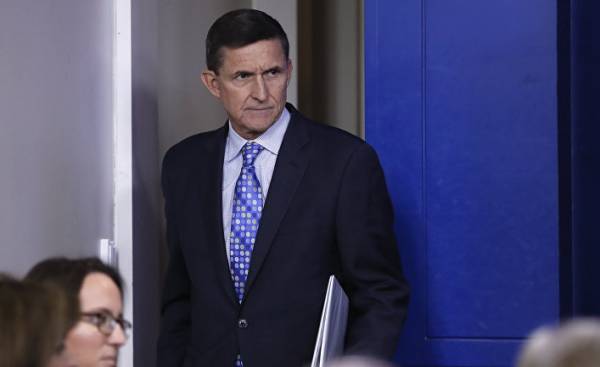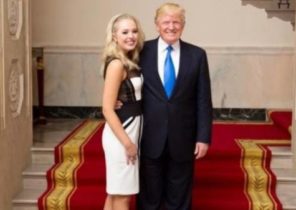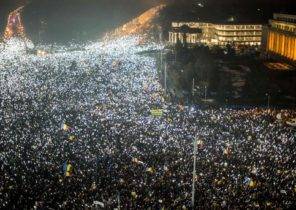
Now in 2017, and today is a weekday, discovered something new in the matter of to what extent former national security Advisor, Michael Flynn (as Michael Flynn) at some point prior to the administration of the President trump may have violated Federal laws.
This time the members of the house Committee on oversight and government reform reported that the inspector General of the Pentagon will begin an investigation to determine, not whether Flynn acted without the necessary authorization to receive funds from a foreign state, when received remuneration for speaking at the event, which was held by the Russian TV channel RT. Earlier, questions were raised about Flynn’s conversations with the Ambassador of Russia in the period between the election and the inauguration of the President.
We have reached the moment when it is necessary to ask, perhaps, inevitable question: can trump pardon Flynn? And, if so, when would he do that?
To get answers to these questions, I spoke with Professor R (Ruckman) College Rock valley, which tracks the history of presidential pardons in his blog, Pardon Power. The short answer: trump, of course, can pardon Flynn, and he can do it any time I want.
“Today, according to the common opinion, or speaking in a professional language of the Supreme Court, the President could pardon a person before, during or after conviction, says a common theme. — Is it possible that trump could pardon (him) for crimes he committed at some period of time? Of course, Yes.”
R indicates the case of President Gerald Ford (Gerald Ford), who shortly after taking office, he pardoned his predecessor Richard Nixon (Richard Nixon) for any crimes that Nixon may have committed. It is the most famous example of a complete justification, but he’s not the only one. “I wouldn’t call this kind of pardon, a common practice, said a common theme. Is something like that when I find a dollar on the sidewalk — you don’t call the newspaper to report it.” He noted that the practice of such a pardon introduced James Monroe (James Monroe) in 1821.
The President’s right to pardon provides for very wide powers. Can pardon trump all in America for crimes they could commit for a certain period of time? Yes, says R, but it clarifies that it must be a crime under Federal criminal law or crimes committed in the district of Columbia. (He explained that actually the presidents in the first phase of his tenure, took the pardons granted over local crimes committed in the district of Columbia — including, according to him, for stealing chickens in the area).
Obstacles in the issue of clemency and the reasons for its cancellation there is very little: trump could be subject to impeachment and be removed from power and granted them the pardon could be revoked by the President, who will replace him. Such cancellation is very rare, but possible. In 2008, George W. Bush has rescinded his pardon granted to a man named Isaac Tussy (Isaac Toussie), knowing that the criminal’s father donated a large sum in favor of Republican politicians (this pardon was able to cancel, because then Isaac Tussy just announced).
Of course, such a move would be a violation of the tradition. In the resonant case a full presidential pardon at this early stage of his presidency would be very unusual, said a common theme. He spoke in detail about the cases of pardons, decisions about which presidents were taken at the beginning of his stay in power, and which attracted considerable attention — in particular, about the pardon of Nixon. He also talked about how Ronald Reagan pardoned two FBI agents convicted of illegal searches in the early 1970-ies — including the man who, as it later became known, were related to the Watergate scandal and was hiding under the pseudonym “Deep throat” (Deep Throat).
This unusual case would be a pardon in a high profile case before the arraignment. When, during the Bush presidency, former assistant Vice-President dick Cheney (Richard Cheney) Lewis “Scooter” Libby (Scooter Libby) came under suspicion, there were calls to pardon him in the pretrial order, to which Bush refused (he later reduced the sentence of Libby).
If trump pardoned Flynn at the moment, it would also be a violation of the rules established by the Ministry of justice, in determining the terms and procedures that Trump would have to “work around”. Not to mention, for what it’s worth politically. If trump pardoned Flynn, it would have caused an increased interest in Flynn’s relations in Russia and sharply raised the question about the desire of the trump to avoid public consideration of these relations.
In other words, most presidents for all of these reasons would not have to make the decision on this pardon. But trump is not one of them, he is not most presidents.
“We cannot ignore the fact that he is very unpredictable and ready to do what does not fit into the norm, and regardless of the reasons, says a common theme. — A feeling that he’s the man who will act, not looking at the rules and not considering it necessary to indulge in detailed explanations. He is more like Andrew Jackson (Andrew Jackson) —I-just-do-this-because-I-so-want.”
Trump, for example, has repeatedly expressed its dissatisfaction with the courts. And if faithful assistant appeared before the court, then, of course, in accordance with his former demeanor he would have pulled Flynn and would have saved him from prosecution. Remember his reaction when Flynn examined the opportunity to apply for a grant him immunity in order to testify in the Senate.
“Mike Flynn should require the provision to him of the immunity that is the witch-hunt conducted by the media and Democrats of historic proportions,” wrote trump on his Twitter page.
At any time, trump would release Flynn from any possible judicial “witch hunt”, giving him immunity from prosecution for any crime under Federal law. This would cause a political scandal. But the fact that it would be very unusual step, it may be trump’s the same (and more) the reason to do that.







